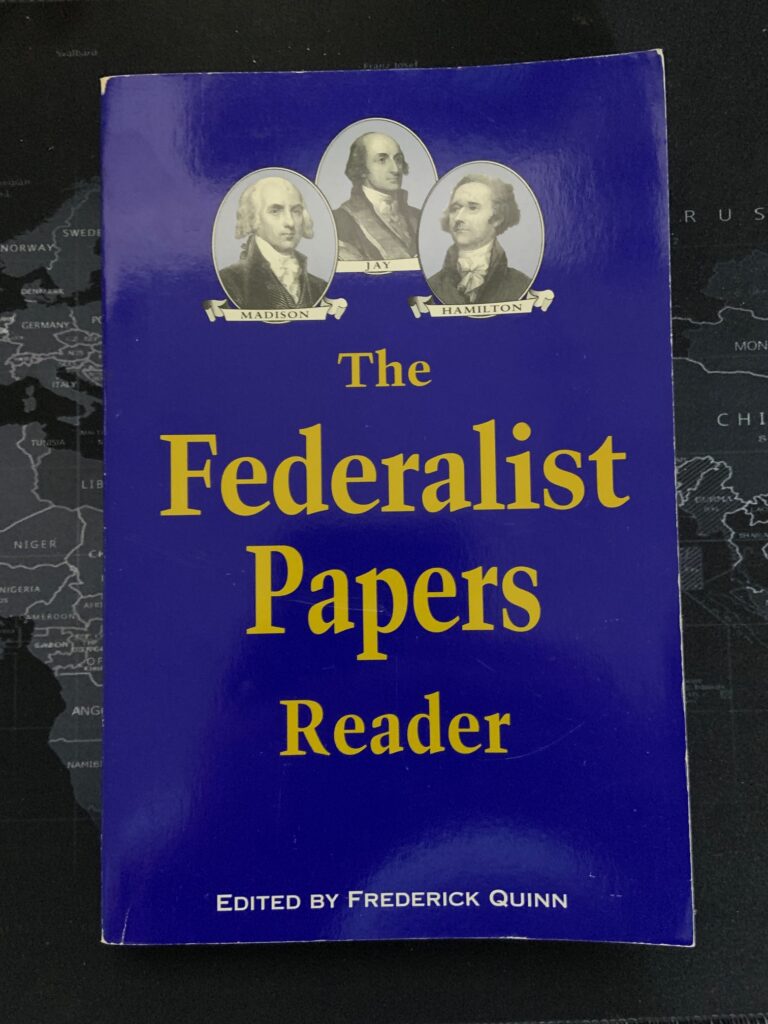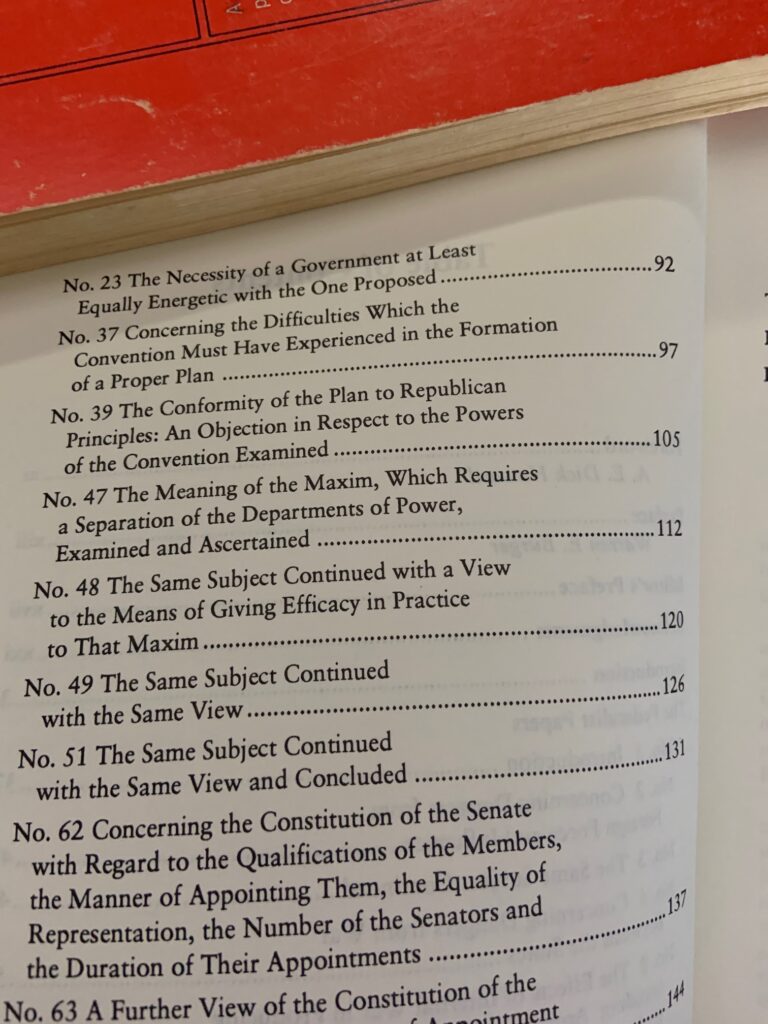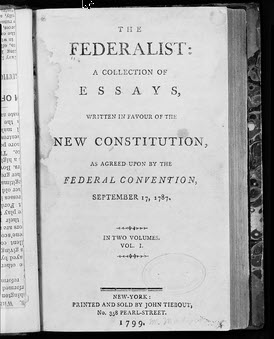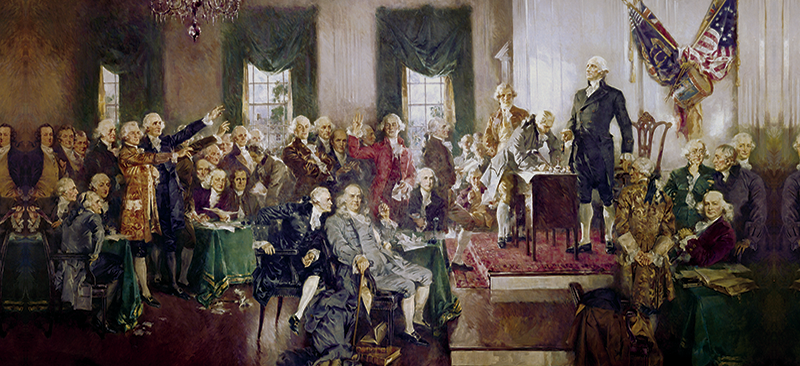Paragraphs 4 & 5
4) Where some powers were given to a general government, which was created by the Individual Sovereign States,
5) Where the powers for the general government are “few and defined” and explicitly stated in the United States’ Constitution, Our Country’s Supreme Law of the Land,
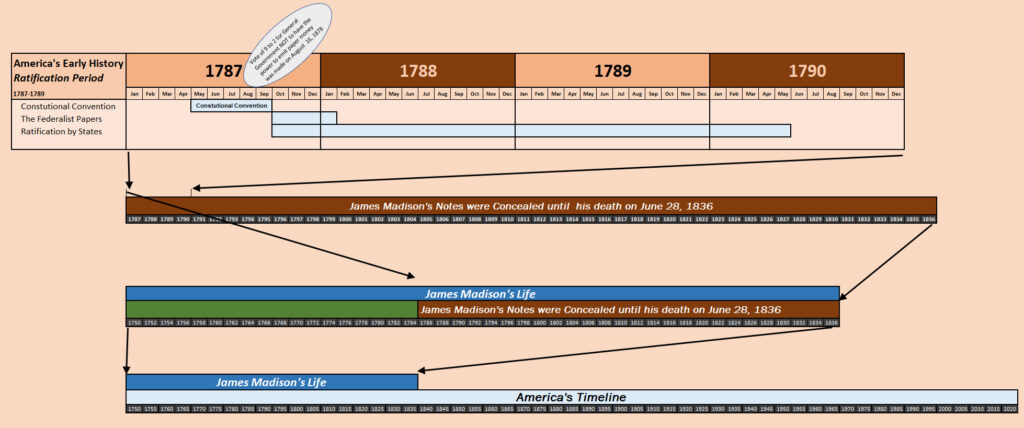
The Federalist Papers were written by Alexander Hamilton, John Jay and James Madison to urge the people of the State of New York to ratify the United States Constitution. At the time the actual names of the authors were not published. The authors were referred to as Publius. Please refer to the above timeline to place the time in historical perspective.
During this period there was a group known as the anti-Federalist who pointed out the concerns and negative issues on ratifying the Constitution. One concern was the proposed general government would grow in size and take on additional powers from the few ones stated in the proposed Constitution. There was concern that the term “general welfare” will be misinterpreted to open the door to any powers. In Federalist No. 45 James Madison provided assurance that the Federal Government would be limited in size to the enumerated powers only. The below quote was taken from Federalist No. 45;
“The powers delegated by the proposed Constitution to the federal government are few and defined. Those which are to remain in the State governments are numerous and indefinite. The former will be exercised principally on external objects, as war, peace, negotiation, and foreign commerce; with which last the power of taxation will, for the most part, be connected. The powers reserved to the several States will extend to all the objects which, in the ordinary course of affairs, concern the lives, liberties, and properties of the people, and the internal order, improvement, and prosperity of the State. The operations of the federal government will be most extensive and important in times of war and danger; those of the State governments, in times of peace and security. As the former periods will probably bear a small proportion to the latter, the State governments will here enjoy another advantage over the federal government. The more adequate, indeed, the federal powers may be rendered to the national defense, the less frequent will be those scenes of danger which might favor their ascendancy over the governments of the particular States. If the new Constitution be examined with accuracy and candor, it will be found that the change which it proposes consists much less in the addition of NEW POWERS to the Union, than in the invigoration of its ORIGINAL POWERS. The regulation of commerce, it is true, is a new power; but that seems to be an addition which few oppose, and from which no apprehensions are entertained. The powers relating to war and peace, armies and fleets, treaties and finance, with the other more considerable powers, are all vested in the existing Congress by the articles of Confederation. The proposed change does not enlarge these powers; it only substitutes a more effectual mode of administering them. The change relating to taxation may be regarded as the most important; and yet the present Congress have as complete authority to REQUIRE of the States indefinite supplies of money for the common defense and general welfare, as the future Congress will have to require them of individual citizens; and the latter will be no more bound than the States themselves have been, to pay the quotas respectively taxed on them. Had the States complied punctually with the articles of Confederation, or could their compliance have been enforced by as peaceable means as may be used with success towards single persons, our past experience is very far from countenancing an opinion, that the State governments would have lost their constitutional powers, and have gradually undergone an entire consolidation. To maintain that such an event would have ensued, would be to say at once, that the existence of the State governments is incompatible with any system whatever that accomplishes the essential purposes of the Union.” (emphasis added)
The point here is the Federal Government was only to have few general powers. It’s pretty clear the Anti-Federalist were correct in their prediction of a General Government that has essentially mushroomed to a size far from the initial intent.
The Federalist Papers are difficult to read at first. Thus, several editions of the Papers have been written using English that is easier to comprehend. While I was doing research I came across one edition that chose to even leave out Federalist No. 45. Why do you think that was done? Chose to ignore it and thereby hide this key point from the public. The book where this was left out is titled “The Federalist Papers Reader,” edited by Frederick Quinn, Seven Locks Press, 1993. The cover page is shown at the right and a copy of the table of contents is provided below that. Note that No. 45 is missing. The above is but one example about how critical information is hidden from the public.
